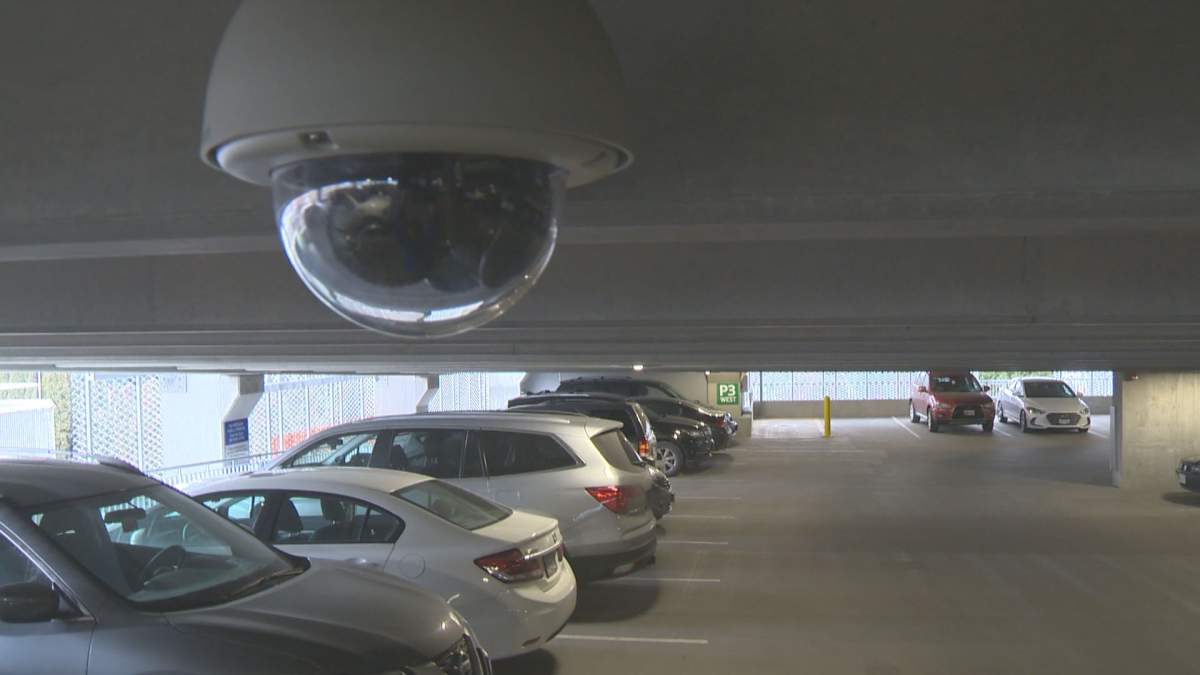The City of Kelowna wants to start monitoring its surveillance cameras around the clock.

While there are many video cameras spread throughout downtown, particularly in parkades and the bus loop, they aren’t watched in real time.
The city wants to change that after launching a two-month pilot project last summer.
“We know that it reduced vandalism and break-and-enters to people’s personal vehicles, and we do believe there are some instances where we may have used those cameras to help save lives by people who were in medical distress due to overdose,” Lance Kayfish, City of Kelowna’s risk manager, said.
“We found at least 400 cases where we feel that having those cameras monitored allowed us to dispatch security personnel to deal with problems before they started,” he added.
But B.C.’s acting privacy commissioner Drew McArthur considers constant surveillance an invasion of privacy. He said it will only get worse as facial recognition technology gets better.

Get daily National news
“We have a basic right to be in a public space without being monitored. It erodes our democratic right to be in public,” McArthur said.
“If you’re in public, there’s an expectation that the people around you can see you. But there is not an expectation that your every movement is being monitored by video surveillance.”
McArthur also noted there’s little evidence that video surveillance prevents crime.
“When we see so many videos of convenience store robberies on TV, every one of those was not prevented by video surveillance,” he said. “In the U.K., where they have six million CCTV cameras, we haven’t seen a reduction of crime.”
If approved, the cameras will be watched by security personnel, Kayfish said.
The program is estimated to cost around $100,000 a year. City council approved $30,000 in the 2018 budget.
“Our plan is to use that with some existing security resources and together provide the resources to do full-time monitoring,” Kayfish said.
The City of Kelowna is working with the privacy commissioner and hopes to have a plan in place in the next two to three months, he said.






Comments